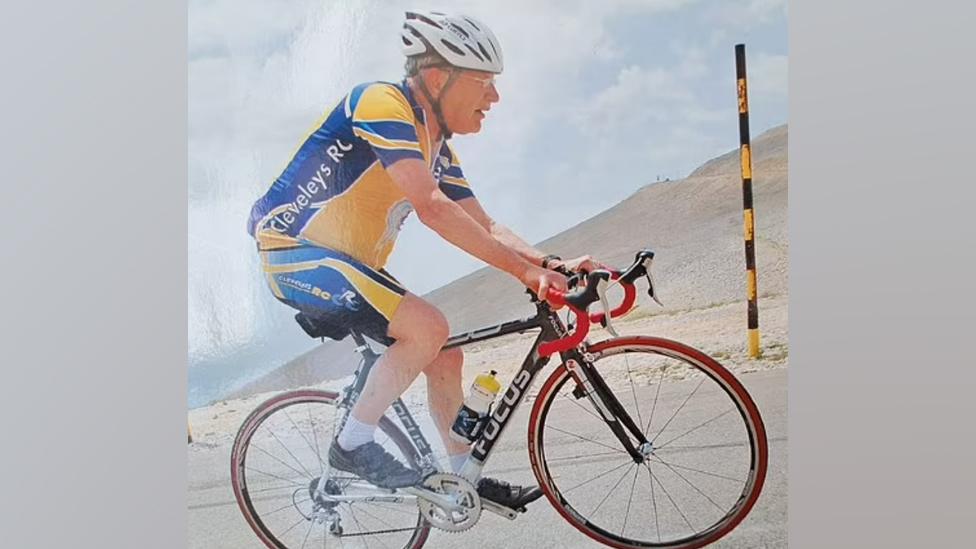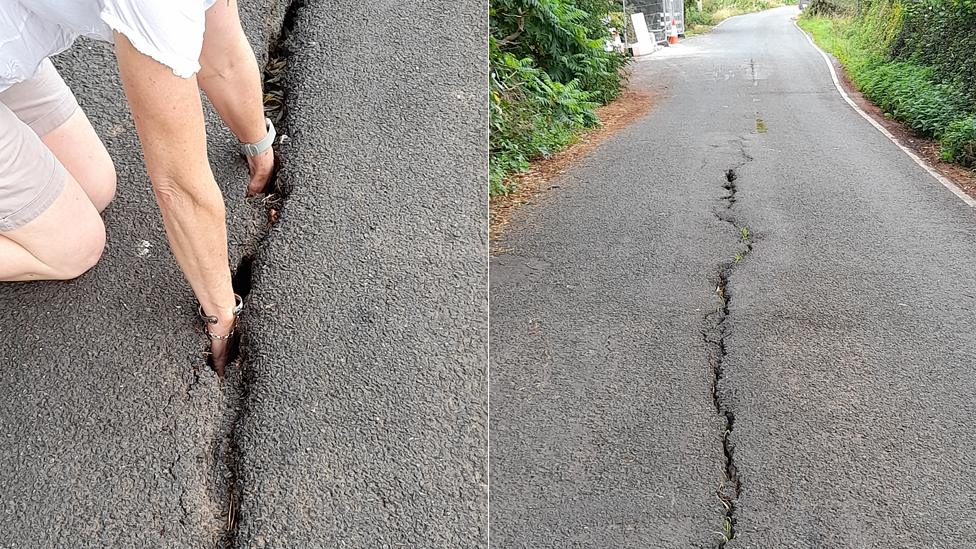Unfixed road crack led to Lancashire cyclist's death - coroner
- Published

Keen cyclist Harry Colledge was a fit and active 84-year-old
A cyclist who suffered a fatal head injury after hitting a large crack in a road would not have died if a council had fixed it, a coroner has concluded.
Harry Colledge, 84, was flung from the bike in Winmarleigh on 2 January.
Coroner Kate Bisset said Lancashire County Council failed to previously identify or repair the crack.
Recording a narrative verdict, she said if the road had been repaired the previous October it was "more likely than not that he would not have died".
The council said it was aware of the coroner's findings and would be "considering" them "thoroughly and carefully".
The inquest heard the keen cyclist, who was a member of Cleveleys Road Club, had been riding along Island Lane with his friend Nigel Mycock.
Mr Colledge, described as "fit and active", was riding alongside his friend until they came to a groove in the centre of the road, at which point Mr Mycock moved to the left and Mr Colledge to the right.
Mr Mycock was slightly ahead and suddenly heard a "sickening crunch" and turned to see Mr Colledge on the floor, with the bike still between his legs, the hearing at Preston Coroner's Court was told.
Mr Colledge, who often cycled 100 miles a day, was treated at the scene and taken to the Royal Preston Hospital but did not regain consciousness.
Police said Mr Colledge would have had less than two seconds to avoid the crack.

A parish councillor photographed the crack
The hearing was told the council had previously been shown a photo of the crack by a parish councillor, with another shot showing its length.
The coroner found its inspections "did not identify the defect which caused Mr Colledge's injuries and thus a dangerous hazard had remained".
She remarked: "It seems to me to be breathtakingly obvious that the defect shown in the photograph is the same defect involved."
The council's position was "not capable of belief" and contrary to the evidence and common sense, she said.
The coroner added: "Mr Colledge's family are well within their rights to feel outraged at the continued refusal of the council to accept the glaringly obvious with regards to the ongoing presence of this crack."
Ms Bisset said if the crack had been repaired: "It is more likely than not that the collision would not have occurred and thus more likely than not that he would not have died at that time."
She said she was not satisfied there had been "sufficient changes or reflection upon the circumstances leading up to Mr Colledge's death".
'Needless death'
The coroner added: "The unrealistic, unsustainable and incomprehensible position adopted by the council with regards to the presence of the defect on Island Lane leaves me with little confidence that meaningful changes have taken place.
"Mr Colledge's death is an utter tragedy to his family and all who knew him. To avoid any further tragedies, I consider it is necessary to issue a regulation 28 notice."
The widow of Mr Colledge said there was always an "accident waiting to happen".
Mrs Colledge added: "It was a needless death and shouldn't have happened.
"It's just going to happen again. All I want is for that lane to be repaired."
The council's chief executive Angie Ridgwell said: "Our thoughts and condolences are with Mr Colledge's family, and we can assure them that we will be considering the findings of this inquest thoroughly and carefully."

Why not follow BBC North West on Facebook, external, X, external and Instagram, external? You can also send story ideas to northwest.newsonline@bbc.co.uk